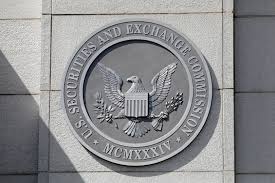SEC Outlines “Effective Cooperation” Standard

The Securities and Exchange Commission is catching up to DOJ. Not in enforcement but in transparency. After years of criticism, the Justice Department has set the gold standard for transparency and providing guidance on enforcement and compliance.
The SEC needs to elevate transparency and offer new guidance to the public and industry. It is even more important for the SEC to provide guidance given the increasing regulatory requirements — e.g., climate change, and cybersecurity disclosures.
In a May 2024 speech, the SEC’s Enforcement Director Gubir Grewal provided guidance on what the SEC considers to be “effective” cooperation. Grewal emphasized the benefits of cooperation during SEC investigations. As a carrot for such cooperation, Grewal indicated that the SEC may recommend reduced charges, reduced or even zero civil penalties in recognition of such cooperation. Grewal noted that a company’s decision to cooperate can protect the company’s reputation in the marketplace.

To provide specific guidance, Grewal outlined “Five Principles of Effective Cooperation in SEC Investigations.” Grewal’s articulation builds on the SEC’s 2001 Seaboard Report, which set a framework for evaluating corporate cooperation. These requirements were reiterated in the SEC’s Enforcement Manual and 2010 Policy Statement on cooperation with an investigation.
Grewal listed five elements: (1) self-policing; (2) self-reporting; (3) remediation; (4) cooperation above what is legally required; and (5) collaboration. The fifth element is a new part of the cooperation standard.
Self-Policing: Grewal stated that companies should commit to self-policing before the SEC becomes involved in an investigation. Building on this requirement, the SEC noted that companies need to create a “culture of compliance” that is established by senior leadership and staying up-to-date on developments and risks. By establishing an effective culture of compliance, the company can argue that the misconduct was the result of a rogue incident rather than a reflection of a culture problem.
Self-Reporting: Grewal urged public companies to report possible relevant misconduct to the SEC as promptly as possible, even if the companies do not know all the facts or are still determining whether a violation occurred. Grewal has stated previously that voluntary disclosure is a critical factor in securing a no penalties resolution or a lower penalties resolution. Grewal did not outline how penalties and disgorgement are calculated or how self-reporting may reduce to a reduction of civil fines.

Remediation: Grewal stated that remediation efforts have to follow a voluntary disclosure. As examples, Grewal referenced certain remedial measures, including disciplining bad actors, conducting training on relevant compliance issues, and strengthening internal controls and compliance policies.
Cooperation (“Above and Beyond”): Grewal noted that cooperation should “go above and beyond what’s legally required.” Specifically, Grewal cited that cooperation by companies could include providing guidance on potentially responsive documents and avoiding large data dumps without pointing to relevant documents central to an investigation.
Collaboration: Grewal encouraged collaborating with SEC staff “early, often and substantively.” Collaboration requires timely, frequent and substantive communication between the company and the SEC.















